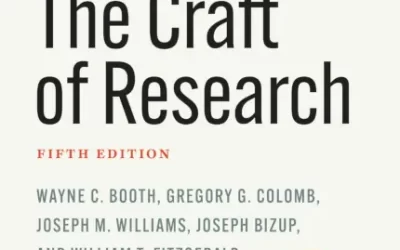Peer reviewed journals often try to promote timely publication as a selling point to potential authors. An efficient publication process is crucial for scholars who are publishing time-sensitive research and who are required to publish in many disciplines for career advancement. In fact, refereeing speed is rated as the third most important factor for scholars in deciding where to publish, behind only referee standard and journal reputation, according to the annual Elsevier Author Feedback Program. Despite this desire for expediency, publication times continue to lag. The latest hurdle for timely peer review seems to be an absence of willing reviewers.

Whether we call it “reviewer fatigue” or the “peer review crisis,” the fact remains that it is becoming increasingly difficult for editors to secure timely, reliable peer reviewers. Though it is not a new phenomenon, a number of recent articles and op-eds have been published on the topic (See Petrescu and Krishen 2022, Flaherty 2022). Editors are inviting a greater number of reviewers upfront in an attempt to gain the desired number of agreements, knowing that 20% of the invitees will not respond and around 60% will agree. So, if 10 reviewers are invited, 6 might agree. This may seem like a lot of reviewers, but keep in mind that the same study showed that once reviewers accept, only 77% complete and submit the review at all, no less on time!
What can editorial support staff do to help facilitate an efficient peer review process?
Reduce the time allotted for reviewers to return their reviews. Evidence shows that shorter deadlines for reviewers produce more timely reviews. For instance, Chety, Saez, and Sandor (2014) found that “shortening the deadline from six weeks to four weeks reduces median review times from 48 days to 36 days.” (Note that even when review times are shortened to 28 days, the median review time is still 36 days.) This also allows editors ample time to invite new reviewers if needed. If a reviewer accepts an invitation to review but does not follow through, it is better to have this information when the review is delinquent at four weeks, rather than waiting six weeks to discover the reviewer is not returning emails.
Build connections with reviewers. Writing reviews is a time-consuming and often thankless effort. The reviewer invests significant time into providing a service that benefits the editor and author, but they often receive little in return. Rather than relying on system mail, editorial staff can create a connection with reviewers by sending more personalized correspondence and reminders. This does place an additional burden of time on the editorial support staff but may reduce time spent chasing overdue reviewers further down the line.
Editors should be encouraged to diversify reviewer invitations. Inga Vesper (2018) analyzed data from Publons’ “Global State of Peer Review” and discovered that between 2013 and 2017, scholars in the United States produced about a third of peer reviews while contributing just over a quarter of the new articles within the data sample. On the contrary, scholars in nine “emerging regions,” including China, Taiwan, Brazil, Iran, and India, contributed 29% of the new articles but only produced 19% of reviews. This is significant as data on why reviewers decline to review has revealed that over 14% of reviewers report being overwhelmed with review invitations and commitments. Extending more invitations to those emerging regions could reduce the abundance of invitations going to reviewers in the United States that are contributing to reviewer fatigue.
Invite reviewers to take a hiatus. This may seem counterintuitive, but demarcating reviewers who cannot currently review papers could save time and reduce reviewer fatigue. Many peer review systems have the capacity for editorial support staff to record notes or assign flags to indicate various statuses. Reviewers who are overcommitted should make inquiring journals aware if they are too busy to take on reviews and plan to take a hiatus from responding to invitations so that this can be left as a note to the editor. This should alleviate the inundation of review invites for a period of time, reduce fatigue, and will ultimately save editorial support staff the time spent sending invitations to unavailable reviewers.
By: Laurel Meierdiercks
Laurel is a Senior Editor, Production and Peer Review at Technica Editorial




